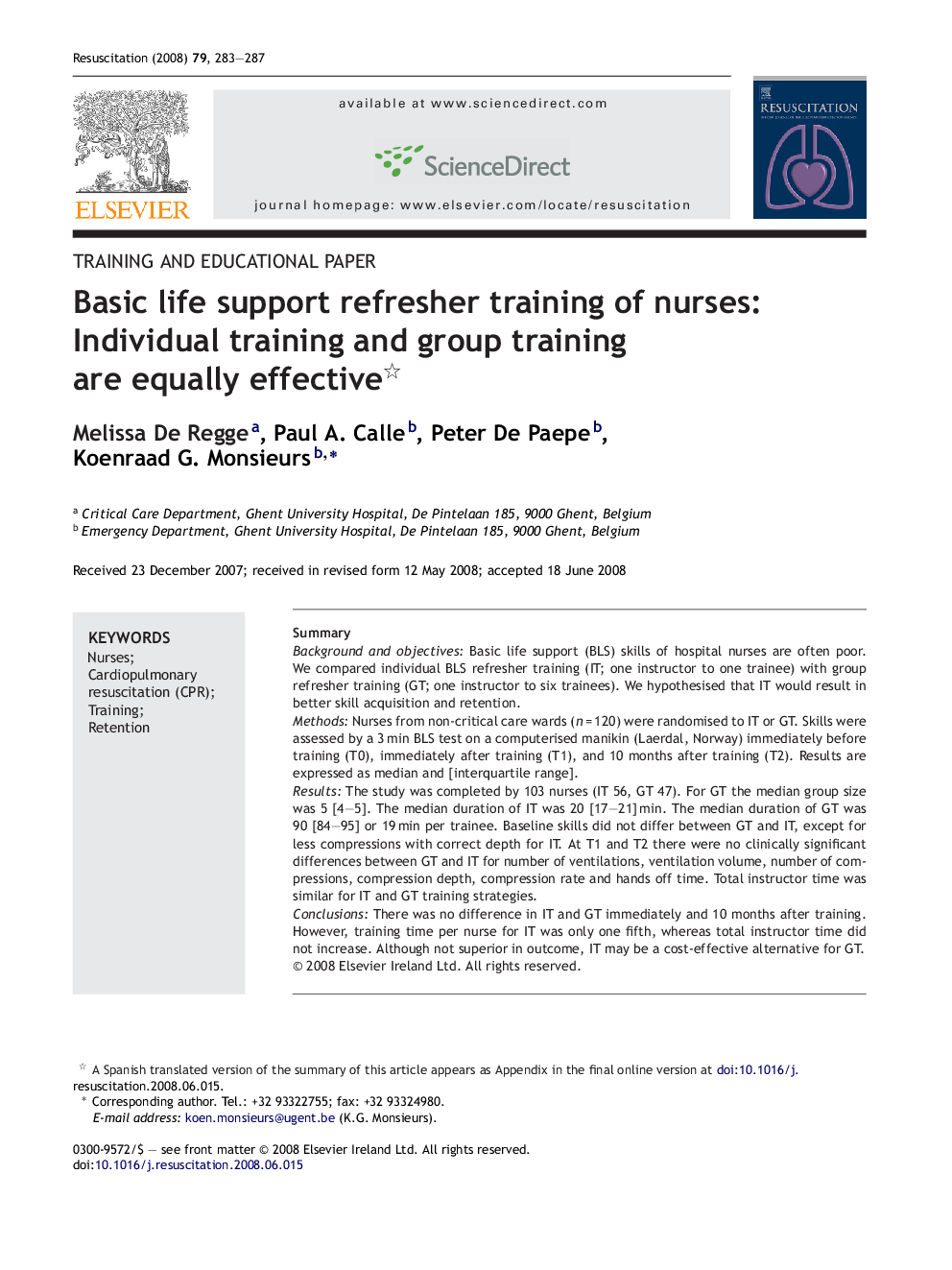| Article ID | Journal | Published Year | Pages | File Type |
|---|---|---|---|---|
| 3011308 | Resuscitation | 2008 | 5 Pages |
SummaryBackground and objectivesBasic life support (BLS) skills of hospital nurses are often poor. We compared individual BLS refresher training (IT; one instructor to one trainee) with group refresher training (GT; one instructor to six trainees). We hypothesised that IT would result in better skill acquisition and retention.MethodsNurses from non-critical care wards (n = 120) were randomised to IT or GT. Skills were assessed by a 3 min BLS test on a computerised manikin (Laerdal, Norway) immediately before training (T0), immediately after training (T1), and 10 months after training (T2). Results are expressed as median and [interquartile range].ResultsThe study was completed by 103 nurses (IT 56, GT 47). For GT the median group size was 5 [4–5]. The median duration of IT was 20 [17–21] min. The median duration of GT was 90 [84–95] or 19 min per trainee. Baseline skills did not differ between GT and IT, except for less compressions with correct depth for IT. At T1 and T2 there were no clinically significant differences between GT and IT for number of ventilations, ventilation volume, number of compressions, compression depth, compression rate and hands off time. Total instructor time was similar for IT and GT training strategies.ConclusionsThere was no difference in IT and GT immediately and 10 months after training. However, training time per nurse for IT was only one fifth, whereas total instructor time did not increase. Although not superior in outcome, IT may be a cost-effective alternative for GT.
